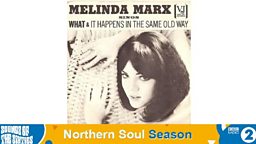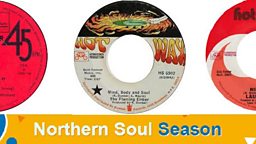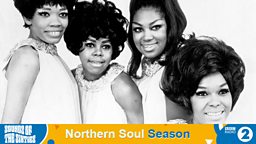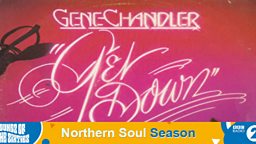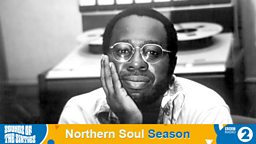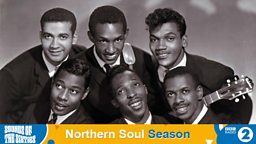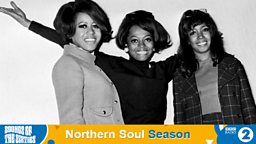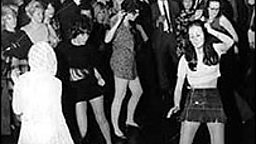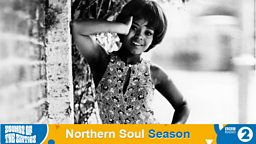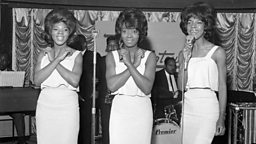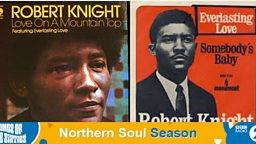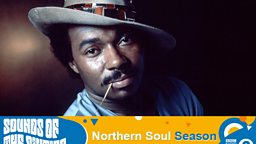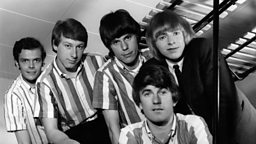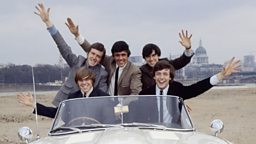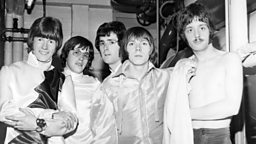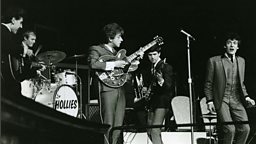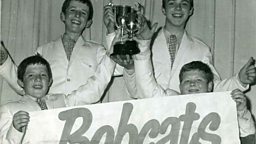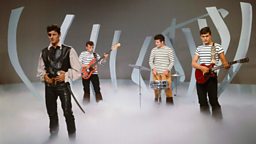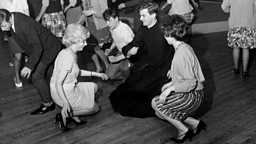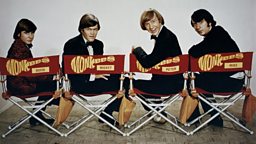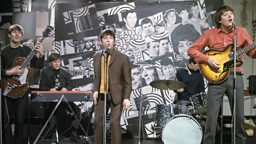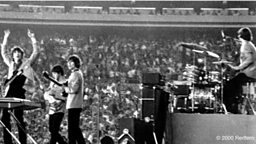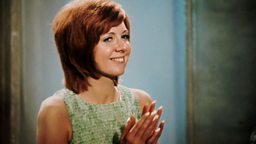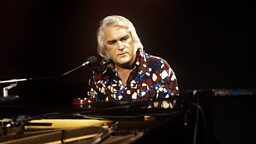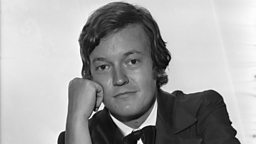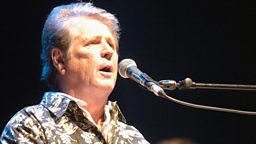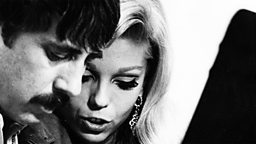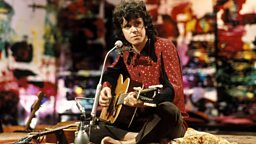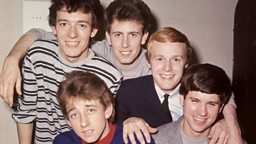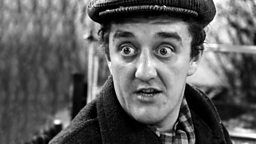The Mindbenders
This week Brian played A Groovy Kind Of Love, the biggest hit for Manchester's Mindbenders, a UK and US no.2 hit in 1966 and one of the evergreen singles of a pretty mindbending year. By Bob Stanley
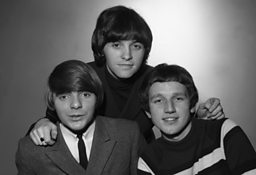
Eric Stewart (guitar), Ric Rothwell (drums) and Bob Lang (bass) had already scored two top ten hits as the Mindbenders, when they were no more than a backing group for Wayne Fontana. The group had formed in 1963 at an audition - two of Fontana's band failed to show and he nabbed Stewart and Lang, who just happened to be in the building, to deputise. Their distinctive name came from a Dirk Bogarde movie, while the singer took his from Elvis's drummer, DJ Fontana. It seemed somehow inevitable that they would sign to the Fontana label where they released a few minor sellers before scoring consecutive Top 5 hits with a cover of Major Lance's Um Um Um Um Um in '64 and The Game Of Love early in '65 (which was written by Clint Ballard Jr. who also wrote the Swingin' Blue Jeans' You're No Good and the Hollies' I'm Alive). But Wayne had always had solo ambitions, and left - quitting while they were midway through a gig in Wembley - in October 1965. He then recorded the vaingloriously titled album Wayne One - there would never be a Wayne Two.
Wayne had always had solo ambitions, and left - quitting while they were midway through a gig in Wembley.
His backing band, on the other hand, put guitarist Eric Stewart in front of the mike and instantly scooped a major hit to rival The Game Of Love. A Groovy Kind Of Love was apparently written in about twenty minutes by Toni Wine and Carol Bayer, one of the rare all-female songwriting teams of the sixties (there was also Lori Burton and Pam Sawyer, an Anglo-American duo who wrote Lulu's Try To Understand and the Whyte Boots' girl group classic Nightmare). It's an almost courtly record, with its martial snare rolls suggesting a formal dance, maybe in a tea garden. The lyric, on the other hand, is all about the female experience - "can't control the quivering inside" suggests something stronger than mere hand-holding, and makes it a forerunner of another Brill Building song, (You Make Me Feel Like) A Natural Woman.
Still, it was a hit for a male beat group, and the Mindbenders showed great loyalty to Wine and Bayer who wrote three of their next four A-sides. The first of these was the magnificent Can't Live With You Can't Live Without You, a tougher record all round than Groovy Kind Of Love, with plangent guitars, a wall of reverb, and Eric Stewart singing about his frustrations with clenched fists and gritted teeth; it only scraped into the Top 30 and the Mindbenders were immediately out of pop's premier league.
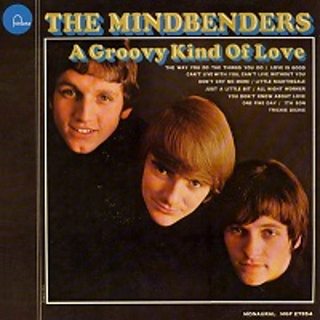
It'd hard to say why things didn't work out for the post-Fontana Mindbenders the way they did for the Tremeloes without Brian Poole. They carried on until 1968, releasing some cracking singles (Graham Gouldman's Schoolgirl in 1967 really deserved to be a hit) as well as two solid albums. The first, self-titled, is one of the most underrated British beat albums of the mid sixties, with a thunderous (uncredited) production; it was slightly out of time, released on the cusp of the album era - after Pet Sounds, just before Revolver - and so, with its reliance on R&B and outside writers, it is rarely referenced these days. But give Little Nightingale a listen if you fancy hearing a tough British beat record to rival the Nashville Teens' Tobacco Road or the Troggs' Wild Thing.
Graham Gouldman joined the Mindbenders for their last few months of existence in 1968. By now Ric Rothwell had left to start a sports goods business, replaced by Paul Hancox, and Bob Lang had quit to open a record shop, with Jimmy O'Neil joining from the Uglies; this left Eric Stewart as the only original Mindbender. When they split in '68, Eric and Graham set up Strawberry Studios in Stockport with fellow Mancunians Kevin Godley and Lol Creme. Among their first clients were Neil Sedaka, the Manchester City football squad, the Syd Lawrence Orchestra... and Wayne Fontana.
-
![]()
More facts and figures about some of the songs in our playlist

